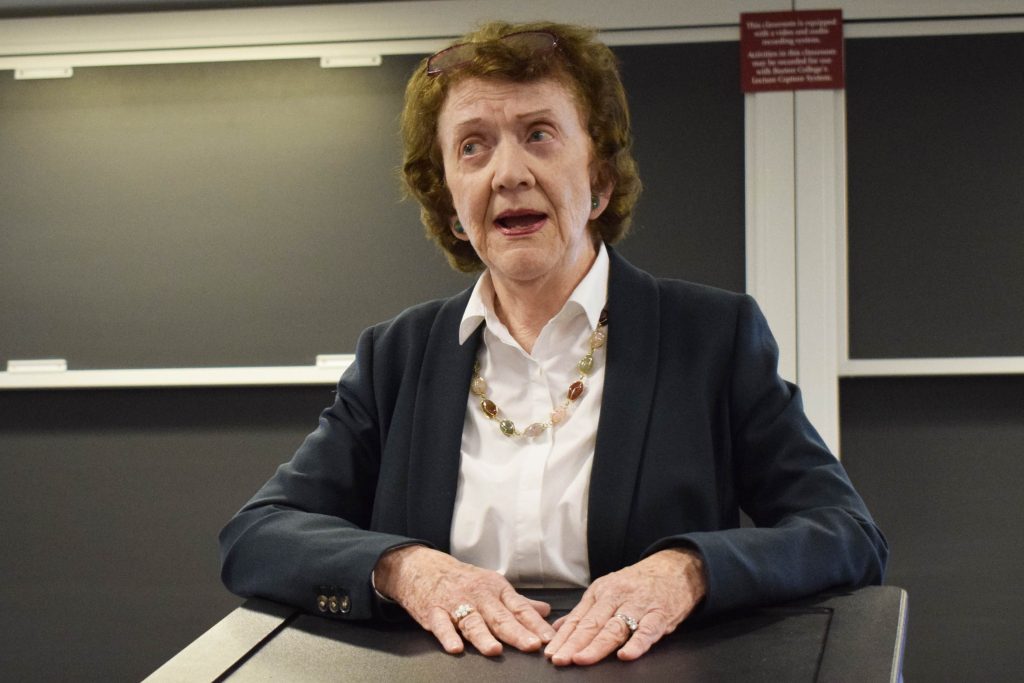Boston College Professor Ann Wolbert Burgess, internationally recognized as a pioneer in the assessment and treatment of victims of trauma and abuse and the researcher whose life inspired the hit TV show Mindhunter, spoke to Law School students February 5 at the invitation of the American Constitution Society.
She conducted her presentation rather like a quiz, describing a case she worked on as an expert witness in which a teenage boy sexually assaulted another boy in the boy’s bed, waking him up from his sleep. She then put questions to the audience that weren’t so much about the technicalities of the law at issue in the case, but rather the psychological ramifications of being awakened and attacked. She said that fear now governed that boy’s life and that he would need support for a long time to assist him in feeling safe again.
Burgess, who has been an expert witness in hundreds of cases, described herself as the damage expert, the person who is consulted when a legal team needs to assess exactly how much money someone’s trauma is worth. She described it as “what the victim needs to make him whole.”
That work began for Burgess early in her career when she and a colleague decided to do a study on rape, which in the 1970s was not a common topic of research. Far from the era of #MeToo, there were few spaces where women could discuss bodily autonomy. In the course of that research, however, she learned of “consciousness raising groups” comprised of women who met to speak freely about their bodies, their health, their independence, and what happened to them or their friends when they were sexually assaulted.
Burgess went on to co-found a crisis counseling program Boston City Hospital, among the first in the country, and later consulted with the FBI on serial offenders, helping to develop modern psychological profiling techniques.
At the BC Law gathering, students asked her many questions; one of the most poignant among them was posed by Justine Sheehan: “How do we help victims of sexual assault?” Burgess said the greatest need is assistance reporting assault and navigating the court system, because most sexual assault cases still go unreported.
One of the reasons Burgess keeps doing what she’s doing, she said, is that she knows she is helping people.
In closing, one student asked what Burgess had learned about human nature and criminals. She said that criminals have a normal side, but they are not normal people.


